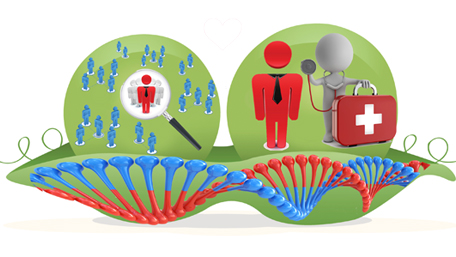
04/02/2021
Hot Topics of the Day are picked by experts to capture the latest information and publications on public health genomics and precision health for various diseases and health topics. Sources include published scientific literature, reviews, blogs and popular press articles.
Sign up MyPHGKB to receive the daily hot topic email alert.
Archived Hot Topics of the Day By Date
Data-Driven Surveillance: Effective Collection, Integration, and Interpretation of Data to Support Decision Making.
Dórea Fernanda C et al. Frontiers in veterinary science 2021 8633977
Impact of diabetes on coronary severity and cardiovascular outcomes in patients with heterozygous familial hypercholesterolaemia.
Liu Ming-Ming et al. European journal of preventive cardiology 2021
Mainstreaming informed consent for genomic sequencing: A call for action.
Bunnik Eline M et al. European journal of cancer (Oxford, England : 1990) 2021 148405-410
Socioeconomic impacts of COVID-19 in low-income countries
A Josephson, et al, Nature Human Behavior, March 31, 2021
COVID-19 pandemic and health-care disruptions: count the most vulnerable
J Kumar, Lancet Global Health, March 31, 2021
COVID-19 vaccines for patients with haematological conditions
C Sun, Lancet Hematological Diseases, March 31, 2021
A method for detection of SARS-CoV-2 RNA in healthy human stool: a validation study
MP Corryel et al, Lancet Microbe, March 31, 20201
Disclaimer: Articles listed in Hot Topics of the Day are selected by Public Health Genomics Branch to provide current awareness of the scientific literature and news. Inclusion in the update does not necessarily represent the views of the Centers for Disease Control and Prevention nor does it imply endorsement of the article's methods or findings. CDC and DHHS assume no responsibility for the factual accuracy of the items presented. The selection, omission, or content of items does not imply any endorsement or other position taken by CDC or DHHS. Opinion, findings and conclusions expressed by the original authors of items included in the Clips, or persons quoted therein, are strictly their own and are in no way meant to represent the opinion or views of CDC or DHHS. References to publications, news sources, and non-CDC Websites are provided solely for informational purposes and do not imply endorsement by CDC or DHHS.
- Page last reviewed:Feb 1, 2024
- Page last updated:Apr 19, 2024
- Content source:





